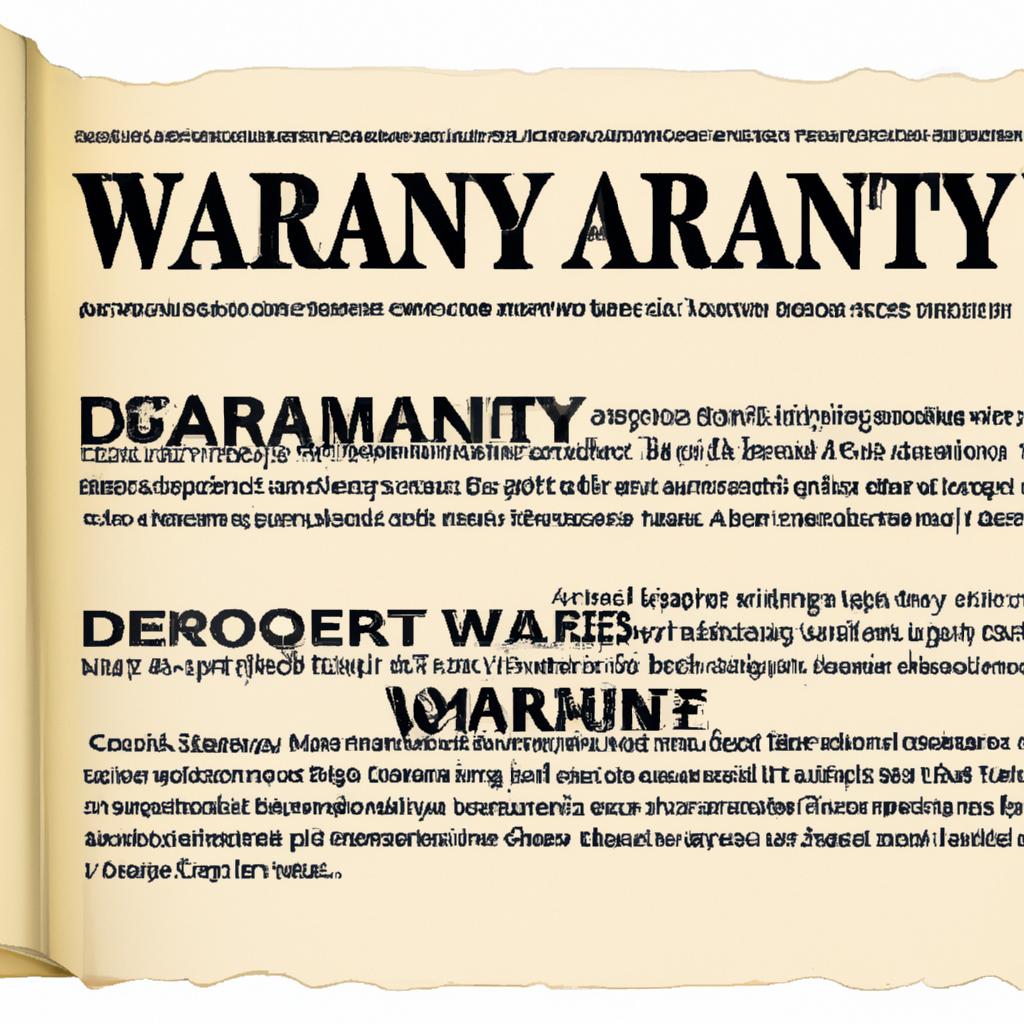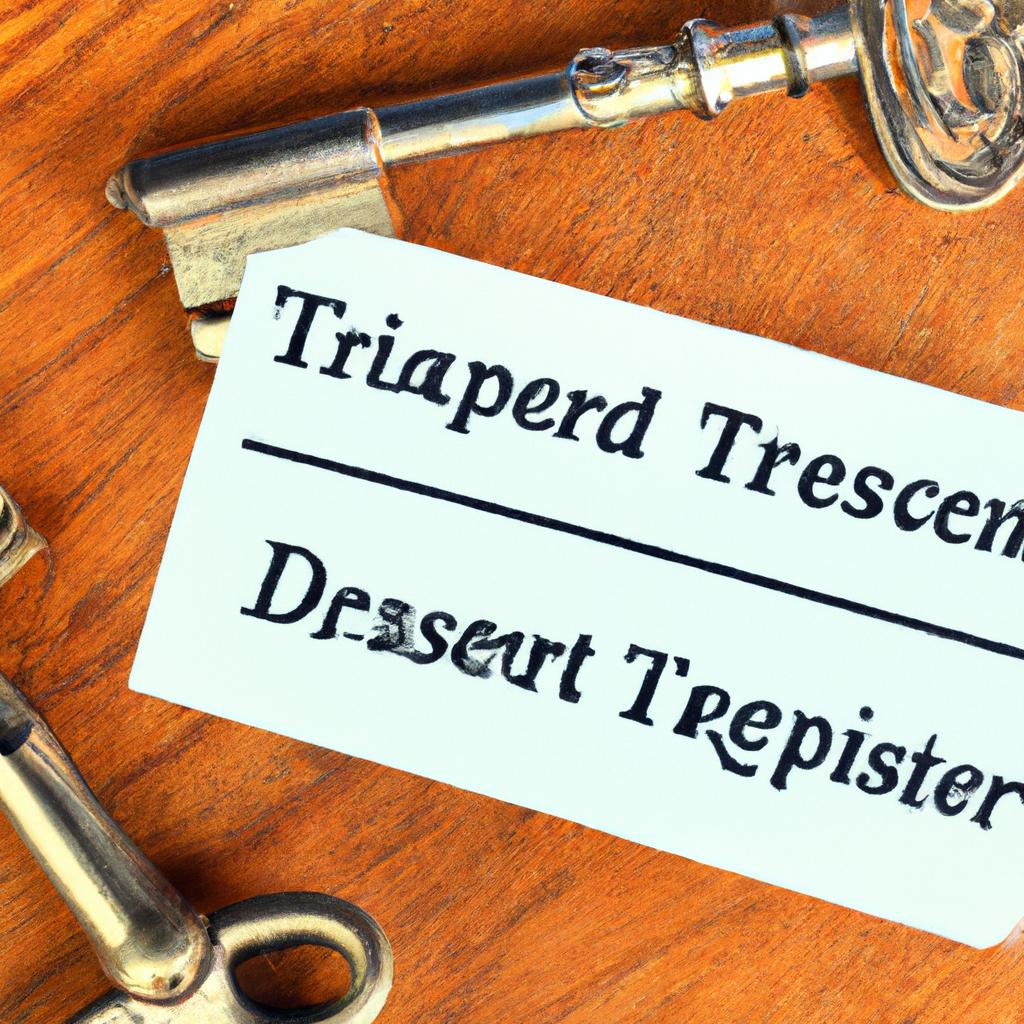In the intricately woven tapestry of real estate law, the choice of deed to transfer property can have profound implications on the rights and interests of the involved parties. As seasoned practitioners at Morgan Legal Group in New York City, we navigate the labyrinthine world of property transactions with precision and expertise. In this illuminating discourse, we shall delve into the various types of deeds commonly utilized in the transfer of property, shedding light on their mechanics, implications, and suitability for different circumstances. Join us on this enlightening journey through the intricate landscape of conveyancing and discover the nuances of property transfers like never before.
Common Types of Deeds Used in Property Transfers
When it comes to transferring property, there are several common types of deeds that are typically used in the process. Understanding the different types of deeds is essential to ensure that the property transfer is legally valid and properly documented. Here are some of the most :
- General Warranty Deed: This type of deed offers the highest level of protection for the buyer, as it guarantees that the seller has clear title to the property and will defend against any future claims.
- Special Warranty Deed: With a special warranty deed, the seller only guarantees that they have not done anything to interfere with the title during their ownership of the property.
- Quitclaim Deed: A quitclaim deed transfers whatever interest the seller has in the property to the buyer, without making any guarantees about the title.
| Type of Deed | Level of Protection |
|---|---|
| General Warranty Deed | High |
| Special Warranty Deed | Moderate |
| Quitclaim Deed | Low |

Detailed Overview of Warranty Deeds and Quitclaim Deeds
When it comes to transferring property, two common types of deeds that are used are warranty deeds and quitclaim deeds. Each type of deed offers different levels of protection and guarantees to the buyer. Here is a breakdown of the key differences between the two:
Warranty Deeds
- Provides a guarantee that the seller owns the property free and clear of any liens or encumbrances.
- Offers the buyer protection against any future claims to the property title.
- Typically used in traditional real estate transactions.
Quitclaim Deeds
- Transfers whatever interest the seller has in the property, without making any guarantees about the property’s title.
- Commonly used in situations where there is a low risk of title issues, such as transferring property within a family or between spouses.
- Does not provide the same level of protection as a warranty deed.

Key Considerations When Choosing the Right Deed for Your Property Transfer
When choosing the right deed for your property transfer, there are several key considerations to keep in mind. One important factor to consider is the type of deed that best suits your needs. The most common types of deeds used in property transfers include:
- General Warranty Deed: This type of deed offers the highest level of protection to the buyer, as the seller guarantees that they have clear and marketable title to the property and will defend against any claims in the future.
- Special Warranty Deed: With this type of deed, the seller guarantees that they have clear title to the property during their ownership, but does not make any guarantees about the title before they owned it.
- Quitclaim Deed: This type of deed offers the least amount of protection to the buyer, as the seller does not make any guarantees about the title to the property. It simply transfers whatever interest the seller may have in the property to the buyer.
Another important consideration when choosing a deed is the specific requirements of your state and local laws. Different states may have different laws regarding the types of deeds that can be used in property transfers, as well as specific requirements for how the deed must be executed and recorded. It is crucial to ensure that your deed complies with all applicable laws to avoid any potential legal issues in the future. Consult with a knowledgeable real estate attorney in your area to help you navigate through the complexities of property transfers and ensure that your deed is valid and enforceable.
Expert Recommendations for Ensuring a Smooth and Legal Property Transfer
When transferring property, it is crucial to choose the right type of deed to ensure a smooth and legal transfer. Different types of deeds serve different purposes, and selecting the appropriate one is essential to protect your interests. Here are some common types of deeds used in property transfers:
- General Warranty Deed: This type of deed offers the highest level of protection for the buyer, as the seller guarantees that they have clear title to the property and will defend against any claims to the title.
- Special Warranty Deed: With this deed, the seller guarantees clear title only for the time they owned the property, not before. It offers less protection compared to a general warranty deed.
- Quitclaim Deed: This deed transfers whatever interest the seller has in the property, without any guarantees about the title. It is often used in non-traditional transfers, such as gifting property to a family member.
Choosing the right deed for your property transfer is crucial to avoid any legal issues in the future. Consult with a legal expert, like the team at Morgan Legal Group in New York City, to ensure that your property transfer is seamless and legally sound.
Q&A
Q: What is a deed and why is it important in transferring property?
A: A deed is a legal document that transfers ownership of a property from one party to another. It is crucial in establishing legal ownership and rights to a property.
Q: What are the different types of deeds used to transfer property?
A: There are several types of deeds, including warranty deeds, special warranty deeds, quitclaim deeds, and grant deeds, each with their own specific purposes and implications.
Q: What is a warranty deed and how does it differ from other types of deeds?
A: A warranty deed is a type of deed that guarantees the owner has clear title to a property and has the right to sell it. It provides the highest level of protection to the buyer compared to other deeds.
Q: What is a special warranty deed and when is it used?
A: A special warranty deed only guarantees that the seller has not incurred any liens or encumbrances on the property during their ownership. It is often used in commercial real estate transactions.
Q: When would a quitclaim deed be used in transferring property?
A: A quitclaim deed is typically used to transfer ownership of a property without guaranteeing the title. It is often used in situations where the parties know and trust each other, such as transferring property between family members.
Q: How does a grant deed differ from other types of deeds?
A: A grant deed is a common deed used to transfer property in many states. It guarantees that the seller has not sold or transferred the property to anyone else and that the property is free from any undisclosed encumbrances.
The Way Forward
Whether you are looking to transfer property through a general warranty deed, a quitclaim deed, or a special warranty deed, understanding the nuances of each type is essential to ensuring a smooth transfer process. By knowing the differences and implications of each, you can make an informed decision that best suits your needs. So, next time you find yourself ready to transfer property, remember to consider the type of deed that will work best for you. Happy transferring!
 Types of Deeds to Transfer Property
Types of Deeds to Transfer Property
When it comes to transferring ownership of a property, most people are aware of the importance of drafting and recording a deed. A deed is a legal document that acts as evidence of the transfer of property ownership from one party to another. However, not all deeds are the same, and each has its unique features and functions. In this comprehensive guide, we will discuss the various types of deeds that are commonly used to transfer property. So, whether you are a homeowner, a real estate agent, or just someone looking to buy or sell a property, this article will provide valuable insights into the different types of deeds and which one may be most suitable for your situation.
1. General Warranty Deed
A general warranty deed offers the highest level of protection to property buyers. It is a legally binding document that guarantees that the seller has the right to transfer the property and that the property is free from any undisclosed encumbrances or defects. In other words, the seller is providing a warranty to the buyer that they will defend the buyer’s title against any potential claims made by third parties. This type of deed is commonly used in traditional property sales, and it is the most secure form of deed for buyers.
2. Special Warranty Deed
A special warranty deed, also known as a limited warranty deed, provides protection to buyers only against the seller’s actions or claims during their ownership of the property. It does not offer any protection against previous owners’ actions. This means that if any issues arise from a previous owner’s actions, the buyer will have to bear the responsibility. Special warranty deeds are often used in commercial property transactions, where buyers are expected to conduct thorough due diligence before making a purchase.
3. Quitclaim Deed
A quitclaim deed is a type of deed that transfers whatever interest the seller has in the property to the buyer, without any warranties or guarantees. This means that the buyer is taking the property “as is,” and the seller makes no claims or guarantees about the property. This type of deed is commonly used in transactions between family members or in cases of transferring ownership between parties who trust each other. It is not recommended for traditional property sales, as it offers the least amount of protection to the buyer.
4. Bargain and Sale Deed
A bargain and sale deed is a type of deed that transfers the property from the seller to the buyer without any warranties or guarantees. However, unlike a quitclaim deed, the seller acknowledges that they have some interest in the property. This interest is not specified and could be any type of claim that the seller may have. Bargain and sale deeds are commonly used in cases where the property is being transferred through foreclosure or tax sale. Buyers of properties with a bargain and sale deed assume the risk of any undisclosed defects.
5. Trustee’s Deed
A trustee’s deed is a type of deed used when a property is held in trust. It transfers the property from the trustee to the beneficiary of the trust. Trustee’s deeds are commonly used in cases of estate planning or when an individual wants to transfer property to a trust. It is important to note that trustee’s deeds must be properly executed and comply with the terms of the trust to be valid.
6. Sheriff’s Deed
A sheriff’s deed is a type of deed used when a property is sold in a court-ordered auction, usually as a result of foreclosure. It is issued by the court and transfers the property from the previous owner to the highest bidder at the auction. Sheriff’s deeds are commonly used in cases where the previous owner was unable to make their mortgage payments or satisfy other financial obligations, leading to the foreclosure process.
7. Tax Deed
A tax deed is a type of deed used when a property is sold to satisfy tax obligations. This may occur when a property owner fails to pay their property taxes, and the local government puts the property up for sale. A tax deed transfers ownership of the property to the highest bidder at a tax sale. It is important to note that tax deeds are often accompanied by a right of redemption, which allows the previous owner to reclaim their property if they can pay all outstanding taxes and penalties within a specified time frame.
In Conclusion
Each type of deed serves a different purpose and offers varying levels of protection to buyers. It is crucial to carefully consider which type of deed is most suitable for a given situation to avoid potential disputes or complications in the future. It is also recommended to seek the advice of a real estate attorney when drafting and executing a deed to ensure that all legal requirements are met.
We hope this comprehensive guide on the types of deeds to transfer property has been helpful and informative. Understanding the different types of deeds can help make the property transfer process smoother and less stressful for all parties involved. Remember to conduct thorough research and consult with professionals before making any decisions regarding property transfers to ensure a hassle-free experience.





